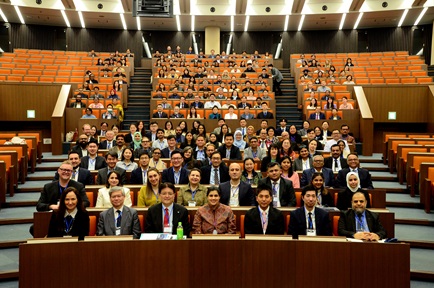Consulting firms facing remake as crisis hits demand for their services
Consulting firms will have to re-invent themselves amid the Covid-19 pandemic, as demand for traditional offerings dries up, industry watchers have told The Business Times.
Still, firms are expected to benefit if they can roll out new services, as the pandemic accelerates business transformation and digitalisation.
Boh Wai Fong, deputy dean of the College of Business at Nanyang Business School, said: "As companies affected by the pandemic are operating on survival mode, clients are more likely to cut costs by delaying the projects or cancelling them altogether."
KPMG has already seen the volume of advisory services projects fall in the earlier part of 2020, compared with previous years, according to partner and co-head of advisory Irving Low, who cited clients' cautious approach to the downturn.
At Deloitte, the value of advisory services reportedly rose by up to 20 per cent in the year to date. But Eugene Ho, regional managing director of Deloitte Consulting Southeast Asia, noted that curbs on in-person gatherings "added a level of difficulty to interacting and building relationships with clients, especially new clients".
The headwinds come even as the consulting industry was dubbed "inefficient, inflexible and slow to adapt" by market research firm CB Insights.
"Business analytics software as well as expert networks abound, and more and more companies are growing in-house strategy teams," it warned in a report earlier this month.
Management consultants provide clients with strategic advice on how to address business problems - but one-size-fits-all templates are becoming harder to apply industrywide.
Calling Covid-19 "double or nothing" for the industry, Organizational Analytics chief executive Andreas Raharso told BT that players which "rely on best practices for one client and try to sell to another smaller client and keep going down" could suffer.
The rise of remote work also forced a rethink of business norms, with Richard Smith, professor of strategic management at Singapore Management University's Lee Kong Chian School of Business, citing the high price tag of travel expenses.
"There is a potential to change the future operating model to significantly reduce travel and rethink the global footprint of the employee base. Consulting firms and their clients may begin to question why we need so many people in high-cost locations like New York, London, and Tokyo."
Yet the pandemic has also fuelled growth in new lines of business for consultancies, with Mr Low telling BT that KPMG is "starting to provide advisory services in new areas such as work-from-home, which was never a topic of discussion pre-Covid-19".
KPMG has also seen increased demand for services such as scenario-planning, dynamic stress tests and rapid business redesign, he added.
Meanwhile, areas such as cost optimisation, data analytics, automation and supply chain have been identified as "outreach priorities" at Deloitte, in line with client demand.
PwC digital business leader Greg Unsworth added that organisations are also looking to grow online presence, improve operations with technology, and support remote work.
Some 84 per cent of organisations here have accelerated their digital transformation during the pandemic, according to a Dell Technologies poll of 200 business leaders in mid-2020.
Said Prof Smith: "Unlike some businesses, consulting firms are adept at working virtually and many seem to have accelerated their services and capabilities to meet client demands related to cyber security, digital business strategies, plans for artificial intelligence, and other areas that have become critical for their clients."
These opportunities come despite challenges such as "slower demand for some more traditional services such as strategic planning", he added.
And although alternatives to traditional consulting have popped up, incumbents are not shying away from "if you can't beat 'em, join 'em".
For instance, Mr Unsworth pointed to the growing popularity of cheaper "plug and play" off-the-shelf technology solutions among small and medium-sized enterprises (SMEs).
Yet PwC moved to develop its own solutions too, and will launch a digital store to showcase these products, he told BT: "We have been working with several government agencies to develop unique service offerings and support for the SME sectors."
Mr Raharso, an adjunct associate professor of strategy and policy at the National University of Singapore Business School, added: "The consultancy industry always thrives based on problems... Covid-19 is a rare problem, so it's actually a very good opportunity for any consulting firm that is able to give a solution."
Now, as Covid-19 becomes the new normal, old-school consulting work looks set to pick up again.
For instance, some deal transactions interrupted by the pandemic are being revived while others are coming onto the market, said Mr Low of KPMG. He also expects more corporate restructuring projects in the next six to 12 months, as companies fold.
Mr Ho said Deloitte's focus "is to help our clients respond to and recover from the crisis, and to thrive in the next normal".
Prof Boh said clients' focus will likely switch to digitalisation, rebuilding their businesses, and boosting sales conversion. "Consultancy firms may thus need to pivot their product and offerings to focus on these areas."
Source: The Business Times, 23 Oct 2020







